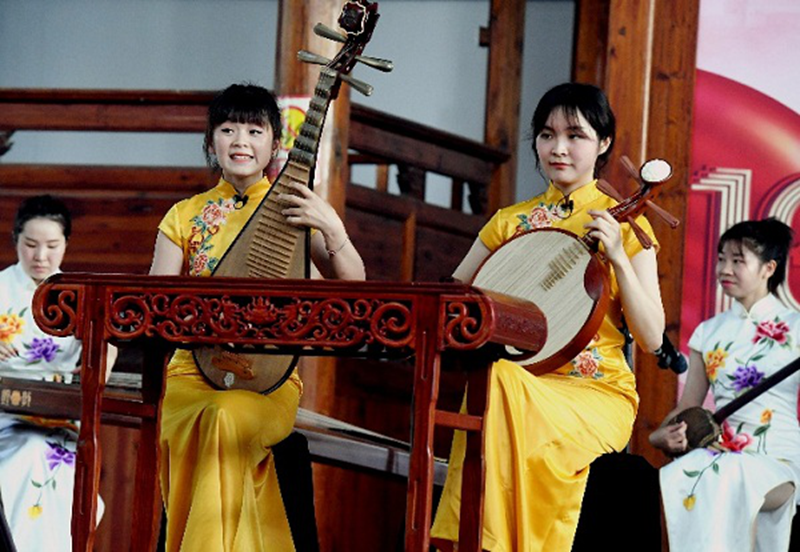
A Fuzhou Chiyi performance takes place. [Photo/VCG]
Fuzhou Chiyi is a traditional Chinese narrative singing art that originated in Fuzhou — capital of East China's Fujian province — and which spread to Taiwan, Hong Kong, Macao, as well as to overseas Chinese communities in Myanmar, Singapore, Indonesia and other regions.
Legend has it that Fuzhou Chiyi evolved from folk ballads and was further developed by street performers who drew inspiration from traditional temple fair activities. It’s believed to have taken shape during the Jiajing reign of the Ming Dynasty (1522–1566). By the time of the Qing Dynasty (1644-1911), numerous folk troupes specializing in this art form, known as she, emerged and became popular.
Performed in the Fuzhou dialect, Fuzhou Chiyi typically features one or two performers who sing while playing instruments such as the erhu or two-stringed fiddle, and the sanxian or three-stringed lute.
The performance is primarily sung, with occasional spoken narration. In traditional temple fair settings, the rendition was often accompanied by acrobatic acts such as "land boat dancing", a mimicry of boating on land, and stilts-walking.
However, since the 21st century, Fuzhou Chiyi has faced severe decline. All dedicated storytelling venues have vanished, and the number of annual stage performances has plummeted from over 4,000 in the 1930s to fewer than 300 today.
The art form suffers from a lack of successors, with fewer than 15 professional performers remaining. Many scripts have been lost, and distinctive stylistic schools have nearly disappeared. Urgent measures are needed to preserve and revitalize this endangered cultural heritage.

Copyright © General Office of Fujian Provincial People's Government
Website Identification Code 3500000049Registration Number: 15003084
All rights reserved. The content (including but not limited to text, photo, multimedia information, etc) published in this site belongs to fujian.gov.cn.
Without written authorization from fujian.gov.cn, such content shall not be republished or used in any form.